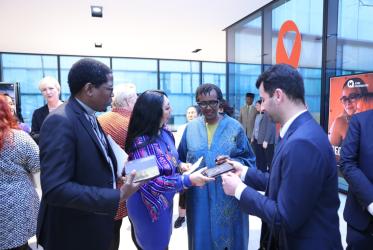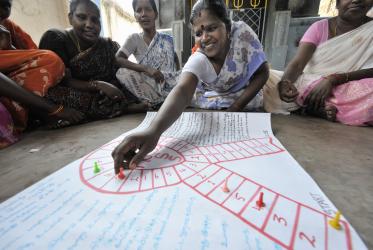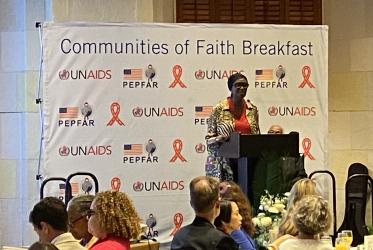Displaying 21 - 40 of 222
HIV and AIDS Civil Society Networks and the Faith Sector
Lessons Learnt from Strategic Engagement in India, Dominican Republic, Indonesia, and Jamaica
31 January 2023
On World AIDS today, tackling inequalities is a matter of justice
02 December 2022
Faith communities in the HIV & AIDS response today
01 December 2022
WCC to hold webinar on HIV and AIDS response in four countries
16 November 2022
Assembly workshop looked toward ending AIDS epidemic by 2030
19 September 2022















